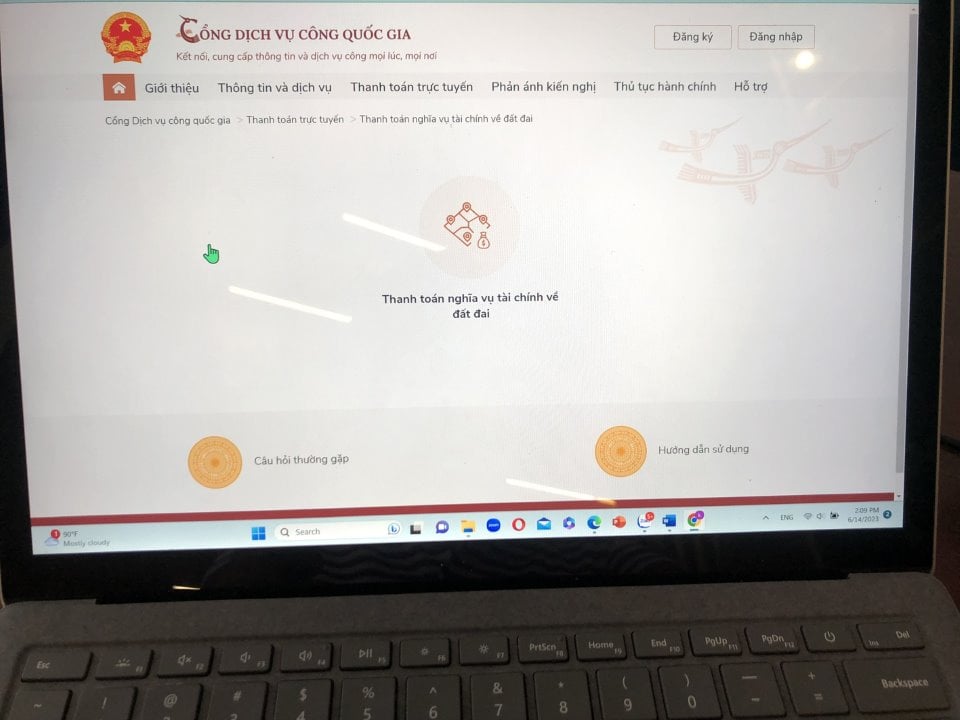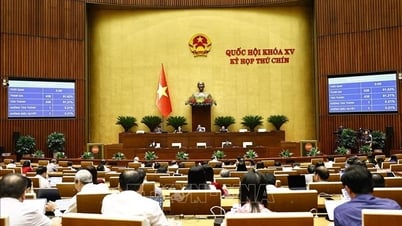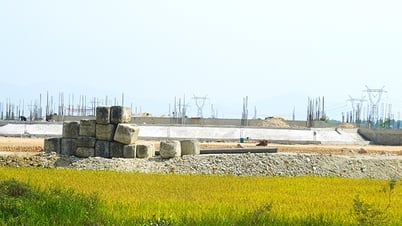According to the law, land users who are allocated land by the State, leased land, have their land use rights recognized, or receive land use rights transfers must exercise their rights and obligations during the land use process. However, in the past, many land users almost did not know where and when they would pay land tax, and what sanctions they would face if they did not pay...
Surprised when tax refund was denied due to land tax debt
Ms. CM (Ward 3, Bac Lieu City) went to do the personal income tax refund procedure but was rejected because the tax authority determined that she owed land tax. Stunned because she did not understand why she had this debt, Ms. CM "ran back and forth" to find out, only to find out that she had not paid the land tax. When she went to do the tax payment procedure, she was also deducted a fine for late payment. Ms. CM indignantly shared: "It's so hurtful to have my land tax debt recorded in my file, and then pay late, and be fined for overdue tax payment, while I did not know and did not receive any notice from the tax authority". Not only Ms. CM but many people are in the same situation, when they are notified of land tax debt.
The obligation to pay land use tax is one of the obligations that land users must fulfill during the process of land use. For residential land, land users must fulfill the obligation to pay annual non- agricultural land use tax according to the provisions of the Law on Non-agricultural Land Use Tax. However, many households and individuals, especially those using non-agricultural land, rarely pay attention to paying this tax for many reasons, including many people not listening to local requirements. Meanwhile, according to regulations, all land not used for agricultural purposes is subject to land tax. Subjects subject to land tax include land located in urban and rural residential areas, including land that has not yet been built but has been granted a license, and must still pay land tax.
People can pay their financial obligations regarding land on the National Public Service Portal. Photo: KK
Responsibility from both sides
The law stipulates that every year, taxpayers must pay real estate tax in two installments, no later than May 30 for the first installment and October 30 for the second installment. Taxpayers can pay twice a year or pay once for the whole year in the first installment.
Specifically, taxpayers (people with land use rights) must submit their dossiers to the Tax Department of the district where the land is located. The dossier for non-agricultural tax payment includes a declaration of non-agricultural land use tax for each taxable plot of land; copies of documents related to the plot of land; documents proving exemption or reduction (if any). Based on the provisions of Article 17 of Circular 153, taxpayers must pay tax according to the notice of the tax authority and must pay within the specified time limit. For example, for households and individuals, in the case of annual tax payment, no later than September 30, the tax authority will calculate and make a tax payment notice. The tax authority is responsible for sending this notice to the taxpayer. Within 10 working days, the taxpayer has the right to respond; if there is no response, the taxpayer must pay the correct amount of tax stated on the notice.
What many households and individuals wonder is that for many years, they have not received any tax notices sent to them, so they cannot know how much tax they have to pay each year. Only when they need to contact the tax office, do they find out that they owe land use tax, and even get fined for overdue debt!
Another problem that many people in this situation said is that they have not been informed or guided by local authorities or tax authorities about the procedures for declaring and paying land use tax according to regulations. This situation not only causes difficulties for people but also causes loss of revenue from non-agricultural land use tax for the state budget in recent times. Especially when currently, tax declaration and payment is quite simple, and financial obligations on land can even be fulfilled through the Public Service Portal, online. The problem is how to disseminate and guide people so that they understand and form the habit of paying taxes.
Kim Phuong
Source link





![[Photo] Many young people patiently lined up under the hot sun to receive a special supplement from Nhan Dan Newspaper.](https://vphoto.vietnam.vn/thumb/1200x675/vietnam/resource/IMAGE/2025/5/18/6f19d322f9364f0ebb6fbfe9377842d3)

![[Photo] Party and State leaders attend the special art program "You are Ho Chi Minh"](https://vphoto.vietnam.vn/thumb/1200x675/vietnam/resource/IMAGE/2025/5/18/6895913f94fd4c51aa4564ab14c3f250)
![[Photo] Ready for the top competitions of Vietnamese table tennis](https://vphoto.vietnam.vn/thumb/1200x675/vietnam/resource/IMAGE/2025/5/18/9c547c497c5a4ade8f98c8e7d44f5a41)



















































































Comment (0)